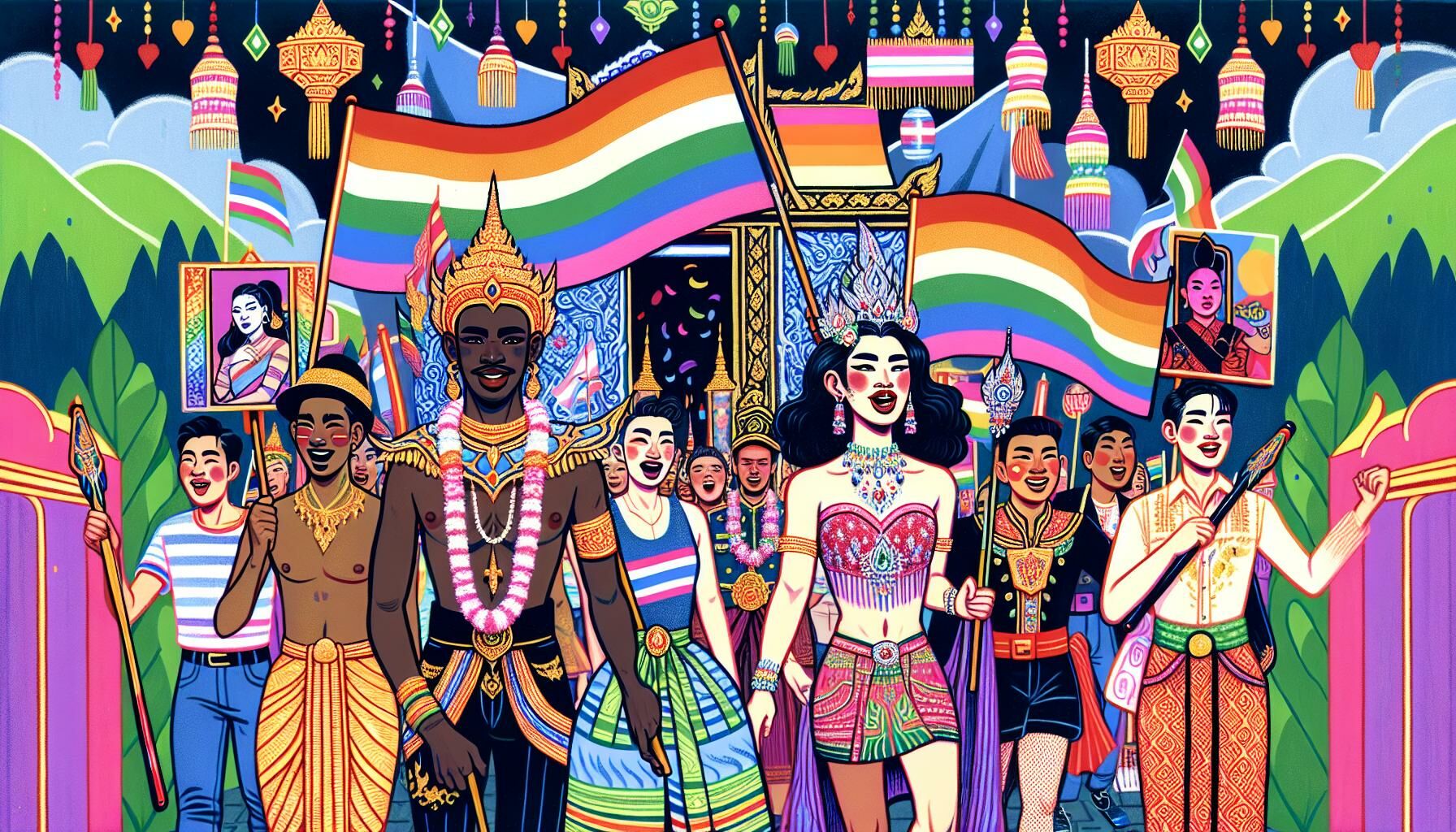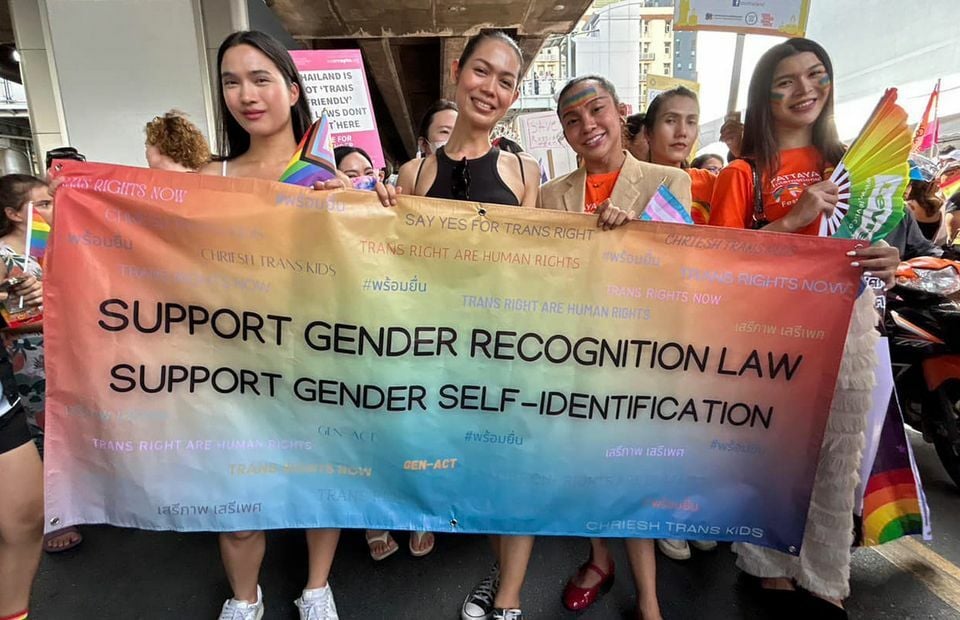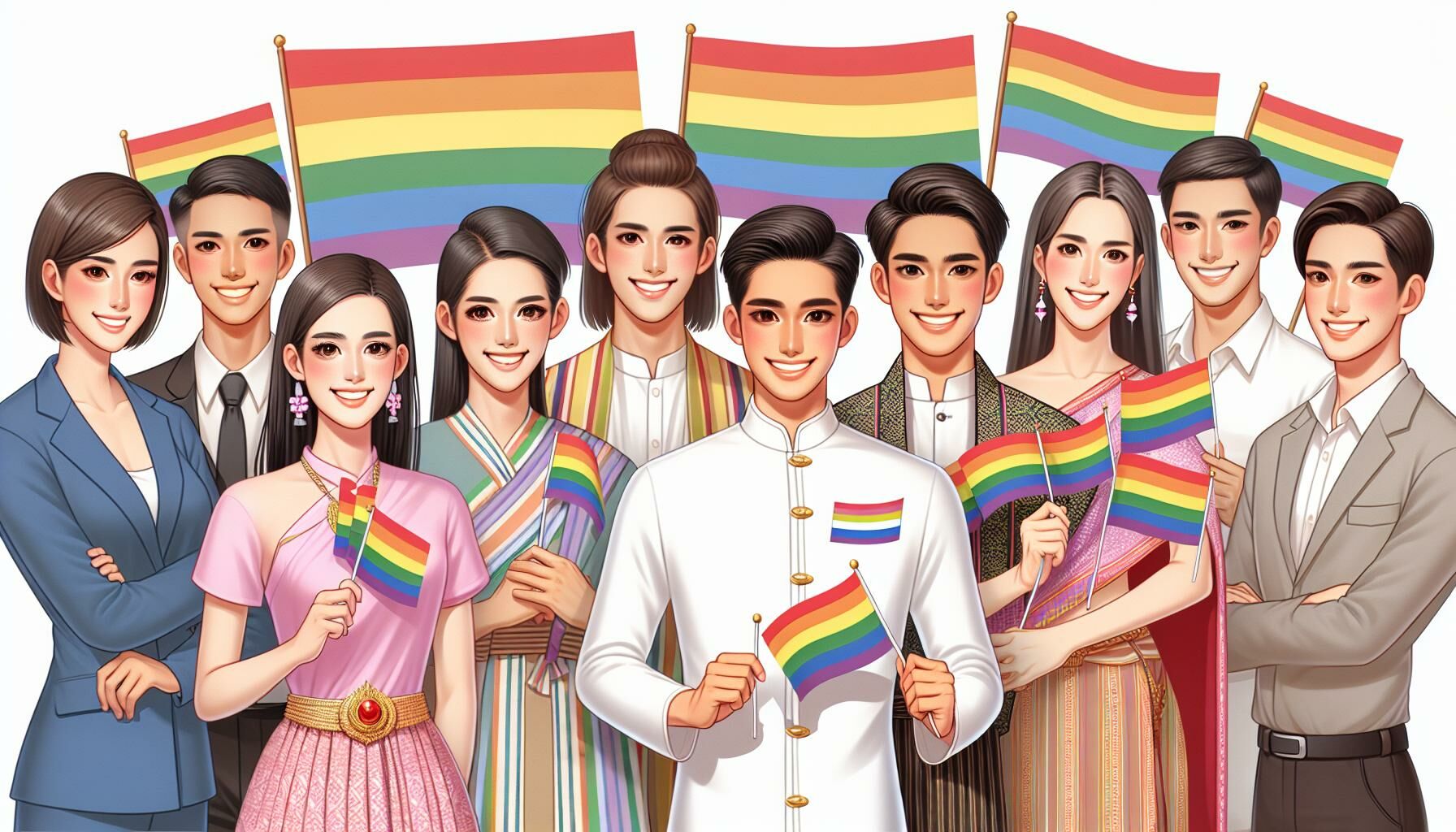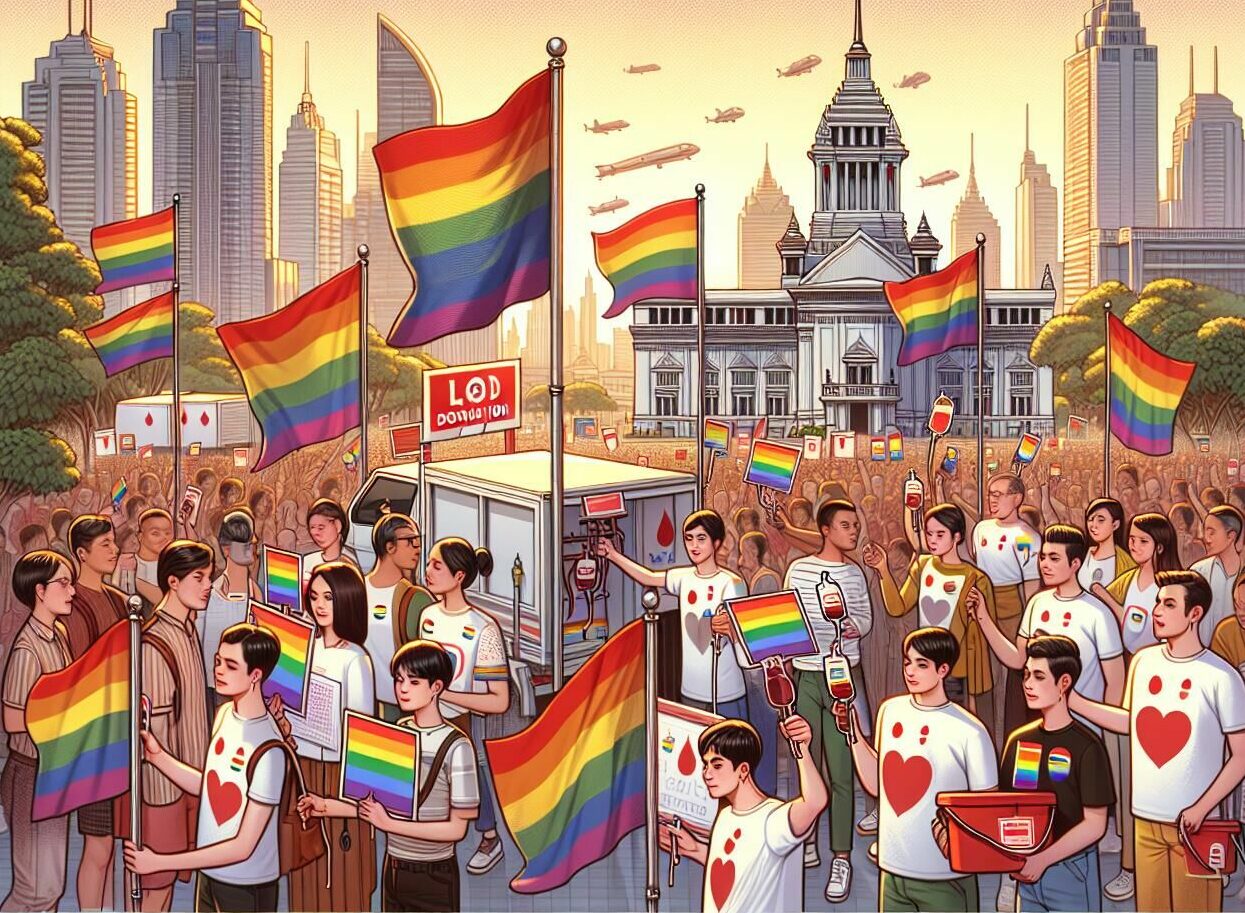The journey of LGBT Thailand

In Thailand, the perception of a welcoming atmosphere for LGBT individuals paints a picture of acceptance that many countries strive for. However, the layers of reality for the LGBT community in this Southeast Asian nation tell a more complex story.
This overview seeks to unravel the contrasts within Thailand’s approach to LGBT issues, not just the progress made but also the barriers that remain in the quest for true equality and societal embrace.
Legality of same-sex sexual activity
Examining the situation concerning the LGBT community in Thailand, it is imperative to understand how the nation legally perceives same-sex relationships. Notably, Thailand exhibits a progressive stance by recognising and permitting same-sex relationships, marking a significant advancement for LGBT rights. This recognition provides a foundational level of rights for individuals within these relationships.
However, it is crucial to acknowledge that this legal acceptance does not fully translate into societal acceptance or equal rights across all aspects of life. Despite the legality of same-sex relationships, challenges persist in achieving full equality, particularly regarding marriage and adoption rights for LGBT individuals. There remains considerable work towards securing comprehensive equal rights and achieving complete societal acceptance for the LGBT community in Thailand.

Recognition of same-sex relationships and marriage
To provide an overview: as of the present, same-sex marriage has not been legalised in Thailand. However, a bill advocating for such change successfully passed the House of Representatives in March 2024 and is currently awaiting approval from both the Senate and the Monarch. Should these stages proceed favourably, Thailand will stand as the inaugural nation within Southeast Asia to endorse same-sex marriage.
Thailand’s commitment to LGBTQ rights has exhibited variance, with the legality of homosexual relationships established but formal recognition or rights for same-sex couples largely absent. The progression of this bill towards embracing marriage equality represents a significant shift in policy direction. This development is closely monitored by both domestic and international observers concerned with advancements in LGBTQ rights.
Adoption and parenting
The rights and challenges faced by the LGBT community in Thailand, adoption and parenting emerge as significant areas requiring attention. While Thailand boasts a comparatively progressive stance towards the LGBT community, legal barriers to adoption and parenting remain. The absence of legislation explicitly allowing same-sex couples to adopt means that individuals within the Thai LGBT community often navigate a complex legal landscape.
For many same-sex couples in Thailand, the journey to becoming parents can involve intricate legal procedures. These often hinge on single-parent adoptions or relying on surrogacy and IVF treatments, where the legal framework can be ambiguous and vary significantly. Moreover, the lack of recognition for same-sex marriages complicates matters further, affecting parental rights and responsibilities.
Discrimination protections

In Thailand, the landscape of discrimination protections for the LGBT community presents a complex picture. While Thailand is often celebrated for its open and accepting attitudes towards LGBT individuals, legal safeguards against discrimination remain limited. Also found that, unlike some Western countries where comprehensive anti-discrimination laws exist, Thailand lacks explicit legal measures to protect the rights of LGBT individuals in critical areas such as employment, education, and healthcare.
However, efforts to address this gap have seen some progress. For example, the Thai government has taken steps towards recognising the rights of transgender individuals, allowing them to change their gender markers on identity documents under certain conditions. This move, though limited, indicates a growing awareness of the need for legal protections.
The absence of widespread legal protections means that members of the Thai LGBT community often rely on social acceptance and tolerant attitudes for support. Discrimination can still occur, particularly in more conservative or rural areas. Advocacy and civil society groups continue to press for comprehensive anti-discrimination laws, aiming to secure equal rights for all members of the LGBT community in Thailand. Their work is crucial, as legal recognition of rights is a key component in combating discrimination and fostering an inclusive society.
Gender identity and expression
In Thailand, the expressions of gender identity are as diverse as the vibrant colours of the Chiang Mai Province Pride Parade. Reflecting this diversity, the Sao Saw Et riot in 2009 marked a pivotal moment, illustrating both the challenges and the resilience of the Thai LGBT community. Despite this, Thai constitutions have historically remained silent on matters of sexual orientation and gender identity.
The legal framework in Thailand, as it pertains to gender identity and expression, remains a patchwork. For instance, Article 56 of the Thai Labour Standard TLS 8001:2010 suggests protections against discrimination in employment based on gender or sexual orientation. Yet, it’s crucial to note that this is a voluntary standard lacking the force of law. This gap in legally binding protections opens the door to discrimination, as evidenced by statutes like the Civil Service Act. It allows for exclusion from employment within the civil service for individuals deemed “morally defective to the extent of being socially objectionable,” a vague criterion that disproportionately affects the Thai LGBT community.
Analysis reveals that, while Thailand presents a facade of tolerance, significant strides are necessary to ensure that gender identity and expression are not just accepted but protected by law. The journey towards inclusivity and equality in Thailand continues, with the LGBT community and its advocates at the helm, pushing for comprehensive legal reforms. Thus, the landscape of gender identity and expression in Thailand is one of contrast—vibrant community expressions overshadowed by the need for substantive legal protections.
Blood donation

In Thailand, the intersection of the LGBT community and blood donation policies reveals a complex scenario. The nation upholds specific guidelines that impact the ability of members of the Thai LGBT community to contribute blood. These protocols, which are not unique to Thailand, often come under scrutiny for their inclusivity and fairness. In many countries, policies restrict blood donations from men who have sex with men (MSM) due to historical concerns over HIV transmission risks. However, as medical testing has advanced, these restrictions have prompted debates about discrimination and the need for updated guidelines based on current scientific evidence rather than historical prejudice.
It’s clear that Thailand, like many places, balances on a fine line between safeguarding public health and ensuring inclusive, non-discriminatory practices within its health services. The Thai LGBT community, an active advocate for change, voices concerns over these restrictions. They argue for policy shifts acknowledging modern testing capabilities that can ensure the safety of blood supplies without blanket exclusions.
While specific regulations regarding blood donation in Thailand might evolve, the current stance underscores a broader need. There’s a growing recognition of the importance of revisiting, and potentially revising, health policies to reflect both scientific advancements and a commitment to inclusivity. As someone deeply interested in the rights and wellbeing of the LGBT community in Thailand, we closely watch these developments, hopeful for progress that embraces both safety and equality.
Living conditions
The living conditions for the LGBT community in Thailand, it’s clear that experiences can vary widely. Thailand often portrays an image of tolerance towards the LGBT community, yet this façade masks underlying issues. For instance, within employment, while Article 56 of the Thai Labour Standard suggests protection against discrimination, it’s voluntary and lacks enforceable power. This inconsistency leaves members of the Thai LGBT community vulnerable in the workplace. In terms of housing, no explicit laws prevent discrimination, thus making living situations precarious for some LGBT individuals. Social acceptance in communities can fluctuate, with urban areas like Bangkok showing greater openness compared to more conservative attitudes in rural parts of Thailand.
Furthermore, public representation and visibility of the LGBT community in Thailand are prominent, notably in media and entertainment. However, this visibility does not always equate to societal acceptance or legal protections. The dichotomy between Thailand’s liberal image and the reality of legal and social challenges underscores the complexity of living conditions for the Thai LGBT community. Advocacy and reform efforts continue, aiming to bridge these disparities and foster an environment where legal protections and societal acceptance align more closely.
LGBT life
In examining the lived experiences of the LGBT community in Thailand, an intriguing contrast between the nation’s liberal aura and the tangible challenges that persist. Despite a broadly tolerant society, the Thai LGBT community faces hurdles in everyday domains, notably in the workforce and educational settings. The Thai Labour Standard TLS 8001:2010 is one such example, offering protections against employment discrimination on the grounds of sexual orientation or gender identity, albeit on a voluntary basis. This initiative underscores the partial progress made but also highlights the absence of these crucial protections in legally enforceable terms.
Moreover, within the civil service, discriminatory practices are subtly woven into the hiring process, effectively sidelining those deemed “socially objectionable” based on outdated moral judgments. This scenario encapsulates the struggle for genuine equality and the need for comprehensive legal reforms that embrace diversity wholeheartedly.
During this Pride month, if you’re seeking for a fantastic promotion with a sex reassignment operation, we always promote love and equality. Visit “Bangkok Pride 2024: embracing gender identity with MyMediTravel’s sex reassignment surgery offer,” as we would love to suggest.
Latest Thailand News
Follow The Thaiger on Google News:


























